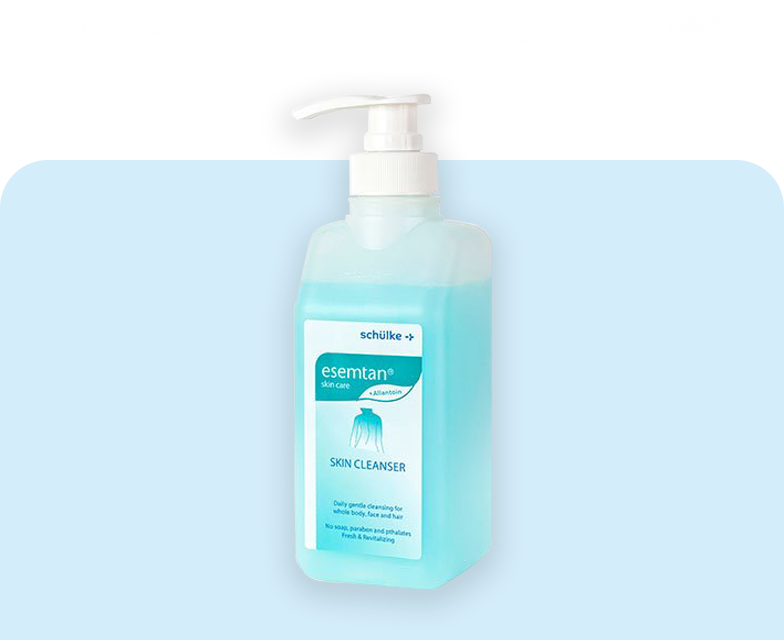Post-surgical care is crucial for optimal recovery, and one of the often-overlooked aspects of this care involves skin cleansing. Surgery, regardless of its type or complexity, can leave the skin vulnerable to irritants, infections, and other complications. Choosing the right skin cleanser after surgery can significantly impact healing, comfort, and overall skin health. This article will delve into the importance of post-surgical skin cleansing, factors to consider when selecting a cleanser, recommendations for effective products, and proper cleansing techniques to ensure a smooth recovery.
Understanding the Importance of Post-Surgical Care
Post-surgical care encompasses various practices aimed at promoting healing and preventing complications. Among these practices, skin cleansing plays a pivotal role. The skin is the body’s first line of defense against pathogens; thus, maintaining its integrity after surgery is vital. Proper cleansing helps remove bodily fluids, blood, and surgical debris that may accumulate on the skin’s surface, potentially leading to infections or delayed healing.
Moreover, caring for the skin post-surgery can enhance comfort and mental well-being. Patients often experience anxiety about their appearance and the healing process. By taking proactive steps to care for their skin, individuals can feel more in control of their recovery, aiding both physical and psychological healing.

Overview of Skin Cleansing After Surgery
After surgery, the skin’s barrier function can be compromised due to incisions, stitches, or other interventions. A suitable skin cleanser should be gentle yet effective in maintaining cleanliness without exacerbating irritation. Cleansing should be approached with care, as harsh products can strip the skin of natural oils, leading to dryness and further complications.
A comprehensive understanding of how skin healing works is essential. During recovery, the skin goes through various stages, including inflammation, proliferation, and maturation. Each of these stages has different needs, and the right cleanser can help support these processes, facilitating a smoother recovery trajectory.
Factors to Consider When Choosing a Skin Cleanser
Type of Surgery and Its Impact on Skin Care
The type of surgery performed can significantly influence the choice of skin cleanser. For instance, abdominal surgeries may require different cleansing protocols than cosmetic procedures. Surgical sites with stitches or open wounds necessitate gentler formulations that do not interfere with healing. Understanding the specific requirements of the surgical area helps in selecting the most appropriate product.
Moreover, different surgical procedures can lead to varying degrees of skin sensitivity. For example, patients who undergo laser treatments may have more fragile skin than those who have had traditional surgeries. Therefore, identifying the type of surgery can guide individuals toward the right post-surgical cleanser.
Skin Sensitivity and Healing
Post-operative skin is often more sensitive than usual. Factors such as medications, anesthesia, and the surgical procedure itself can contribute to increased sensitivity. As such, individuals should opt for cleansers specifically formulated for sensitive skin, which may contain soothing ingredients like aloe vera or chamomile. These ingredients help mitigate irritation and promote healing.
Additionally, it’s crucial to be aware of personal skin types—oily, dry, combination, or sensitive. Each skin type may react differently to cleansers, influencing their effectiveness. For instance, a creamy, hydrating cleanser may work better for dry skin, while a foaming cleanser may be more suitable for oily skin types. Understanding one’s skin type can significantly impact recovery outcomes.
Ingredients to Look For
When selecting a skin cleanser for post-surgical care, it is essential to consider the ingredients. Look for products that contain hydrating agents such as glycerin, hyaluronic acid, or natural oils like jojoba or almond oil. These ingredients help restore moisture to the skin, soothing any post-surgical dryness or tightness.
Antimicrobial properties can also be beneficial. Ingredients such as tea tree oil or witch hazel have natural antibacterial properties that can aid in preventing infections. It’s always advisable to choose fragrances and dyes-free formulations, as these can often irritate sensitive skin and hinder the healing process.
Potential Irritants to Avoid
Several ingredients should be avoided when selecting a post-surgical skin cleanser. Harsh exfoliants, alcohol-based formulas, or strong fragrances can cause irritation and disrupt the healing process. It’s also best to steer clear of sulfates, parabens, and artificial colorants, as these can exacerbate skin sensitivity or lead to allergic reactions.
Moreover, avoid cleansers with strong antiseptic ingredients unless specifically recommended by a healthcare provider. While these might seem beneficial, they can also be overly drying and harmful to newly healed skin. Prioritizing gentle, skin-friendly formulations is crucial for optimal recovery.

The Benefits of Using the Right Cleanser
Promoting Faster Healing
Using the right cleanser after surgery can promote faster healing by creating an optimal environment for skin recovery. Gentle cleansers help maintain the skin’s natural barrier, preventing moisture loss and allowing for proper skin regeneration. This environment is essential for healing tissues, particularly in areas where skin has been compromised.
Additionally, a well-chosen cleanser can help keep the surgical site clean without causing trauma to the skin. This minimizes the risk of complications associated with improper wound care, thus speeding up overall recovery times. Patients often notice marked differences in healing when they invest in quality skin care products tailored to their specific needs.
Reducing the Risk of Infection
One of the primary concerns after any surgical procedure is the risk of infection. Utilizing the right skin cleanser can significantly reduce this risk. Cleansers with antibacterial properties, when carefully selected, can help eliminate surface bacteria and prevent them from entering healing wounds.
Furthermore, a clean surgical site can prevent the conditions that allow infections to thrive. Regular cleansing, as recommended by healthcare professionals, ensures that debris and pathogens do not accumulate around the surgical area, further promoting a safer healing process.
Minimizing Scarring
Scarring is a common concern for many individuals after surgery. The correct skin cleanser can play a role in minimizing scarring by ensuring the skin remains hydrated and healthy throughout the healing process. Clean moisturized skin is less likely to develop thick, raised scars compared to dry or irritated skin.
Moreover, gentle cleansing can help reduce inflammation in the surrounding area, which is critical in scar formation. By selecting a cleanser designed to support the skin’s healing mechanisms, patients can improve their chances of achieving optimal aesthetic outcomes.
Enhancing Overall Skin Health
Choosing the right cleanser is not just about post-surgical care; it also enhances overall skin health. Quality cleansers promote hydration and nourishment, contributing to a more radiant complexion even post-recovery. Ingredients that support skin healing often enhance skin texture and elasticity over time.
Furthermore, establishing a gentle cleansing routine can contribute to long-term skin health. By developing habits that prioritize skin care, individuals can safeguard their skin against potential issues in the future, leading to improved resilience and appearance.
Recommended Cleansers for Post-Surgical Care
Gentle, Hydrating Cleansers
Some of the most recommended cleansers for post-surgical care include those that are gentle and hydrating. Products like Cetaphil Gentle Skin Cleanser and Vanicream Gentle Facial Cleanser are excellent options. They are free of harsh chemicals, non-irritating, and provide necessary hydration without stripping the skin.
These cleansers often have a creamy texture that helps maintain skin moisture. They can be used effectively without causing trauma to sensitive areas, making them suitable for any post-surgical regimen.
Antibacterial Options
For patients concerned about infections, considering a mild antibacterial option is beneficial. Products that contain benzoyl peroxide in low concentrations or tea tree oil provide a natural antibacterial effect while remaining gentle on sensitive skin. Brands like Neutrogena offer gentle foaming cleansers with antibacterial properties that can be suitable for post-surgical care.
Always consult a healthcare professional before introducing antibacterial products, as they may not be suitable for all types of surgeries or skin conditions. The guidance of a physician will ensure that the selected product complements the ongoing recovery process effectively.
Natural and Organic Choices
Natural and organic cleansers have gained popularity due to their gentle formulations and minimal synthetic ingredients. Brands like Dr. Bronner’s and Burt’s Bees offer organic options that are free from synthetic fragrances and dyes. These products use plant-based ingredients known for their soothing properties, making them ideal for post-surgical skin.
Opting for a natural cleanser can help minimize exposure to irritants, which is particularly important in the fragile state of post-surgical skin. These products often contain botanical extracts that support healing, such as calendula or chamomile, which can further enhance skin recovery.

How to Properly Cleanse Skin After Surgery
Step-by-Step Cleansing Routine
Establishing a proper cleansing routine is essential for post-surgical care. Begin by washing your hands thoroughly to prevent introducing bacteria to the surgical site. Use lukewarm water, as extreme temperatures can irritate the skin. Apply a small amount of the chosen cleanser to a soft cloth or your palms, gently massaging it over the skin without aggressive rubbing.
Rinse thoroughly with lukewarm water, ensuring that no cleanser remains on the skin. Pat the skin dry with a soft, clean towel; avoid rubbing as this can cause irritation. After cleansing, follow with a suitable moisturizer to lock in hydration and support healing.
Frequency of Cleansing
The frequency of cleansing will depend on the type of surgery and the advice from healthcare professionals. Generally, cleansing once or twice a day is ideal for most post-surgical patients. However, after initial healing (usually around the first week), some may be advised to cleanse more frequently, especially if there are concerns about infection.
It is essential to monitor the surgical site for any signs of irritation or infection. If redness, swelling, or unusual discharge occurs, consult a healthcare professional immediately. Adjusting cleansing routines based on these observations is critical for ensuring a safe recovery.
When to Consult a Professional
If you notice any signs of irritation or unusual changes in the surgical area, consult a healthcare professional without delay. Additionally, if you’re unsure about which cleanser to use or how often to cleanse, seeking advice from a dermatologist or the surgeon is advisable. They can provide personalized recommendations based on individual needs and the specific type of surgery performed.
In cases of persistent dryness, redness, or discomfort, professional guidance may help identify underlying issues or recommend alternate products. Taking proactive steps to address concerns early on can prevent complications and ensure a smoother recovery process.
Conclusion
Recap of the Importance of Choosing the Right Cleanser
Choosing the right skin cleanser after surgery is not just a matter of hygiene; it’s a critical component of the recovery process. By understanding the unique needs of the skin post-surgery, individuals can select products that promote healing, reduce the risk of infection, minimize scarring, and enhance overall skin health. The right choice can make a significant difference in both the short and long-term outcomes of post-surgical care.
By prioritizing this aspect of recovery, patients can take control of their healing journey, ensuring they support their bodies in the best way possible. Incorporating gentle, hydrating, and suitable cleansers into the daily routine is an investment in one’s health and well-being.
Encouragement to Prioritize Post-Surgical Skin Care
In conclusion, the road to recovery can be a challenging journey, but adequate post-surgical skin care, particularly cleansing, can ease this process significantly. Patients are encouraged to consider their unique needs, consult professionals when needed, and invest in suitable products that enhance healing and comfort. Paying attention to post-surgical skin care can lead to better outcomes, ensuring that individuals emerge from their surgical experiences feeling confident and healthy.



